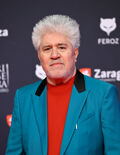
Victories aren’t won overnight, and the road to acceptance for LGBTQ people in America has been impeded by hate, violence, brutality and ignorance over the decades. It’s been bumpy to say the least.
We owe it to those who fought for justice in our name to learn about their struggle, their pain and their successes as we carry the torch into the future.
History class is in session.
Scroll down for 17 amazing events that brought us closer to equality…
How about we take this to the next level?
Our newsletter is like a refreshing cocktail (or mocktail) of LGBTQ+ entertainment and pop culture, served up with a side of eye-candy.
1. Julius’ sip-in, 1966

Members of the Mattachine Society, one of the nation’s earliest gay rights groups, were frustrated with the New York City ordinance banning the serving of alcohol to openly gay people. So they went over to Julius’—which had attracted the swishy set at least since the 1950s — and announced they were homosexuals.
After they were refused service, the men filed a complaint with the city’s Commission on Human Rights. This led to a 1967 state court ruling that declared the SLA (State Liquor Authority) needed “substantial evidence” of indecent behavior to close a bar and not just same-sex kissing or touching. The decision was a landmark case that reversed years of discrimination and became a key catalyst in the eventual gay rights movement.
Inspired by similar protests against segregated lunch counters, the “sip-in” was one of the first orchestrated acts of civil disobedience against anti-gay demonstration. And it made headlines, though the New York Times called the Mattachine members “sexual deviates.”
You can still stop into Julius’ in Greenwich Village to see where it all went down, and once a month, John Cameron Mitchell stops by to DJ a funky dance party, aptly named “Mattachine.”
2. Black Cat raid, 1967

It was New Year’s Eve, and undercover cops tried to arrest patrons who kissed at midnight at this Silver Lake neighborhood gay bar in Los Angeles. In response, bar-goers rioted — a tactic that’s proved popular over the years in Los Angeles — and eventually police reinforcements arrived to beat people into submission.
In the days that followed, local organizers P.R.I.D.E. (Personal Rights in Defense and Education) held a protest rally. The event served to unite the community and drove further activism — including the founding of a magazine that would become The Advocate. It’s the first use of the term “Pride” in relation to gay rights.
3. Stonewall riots, 1969

Many mark the Stonewall riots as the official “shot heard round the world” that sparked the beginning of what we know as the modern gay-rights movement. In the early morning hours of June 28, New York City police faced off against the trans and gay bar patrons in what would become a true tipping-point moment in the battle for equality.
Even today, the last Sunday in June is marked by gay Pride around the world.
4. The first LGBT Pride Parade is held in New York, 1970

There were no floats at this inaugural event — it was more of a politically-driven demonstration to commemorate the Stonewall Riots than the non-stop party it is today.
5. The American Psychiatric Association removes homosexuality from its Diagnostic and Statistical Manual of Mental Disorders (DSM-II), 1973

The Gay Liberation Front formed within days of the Stonewall Rebellion. Firmly aligned with America’s leftist movement, the GLF wanted nothing less than to strip America of its restrictive sexual policies. The GLF proved too radical for some members, who went off to form the Gay Activist Alliance.
In addition to taking on politicians, the GLF and GAA lent their voices to the campaign to change the American Medical Association and the American Psychiatric Association’s respective stances on the gays. For example, On May 14th, 1970, GLF members raided an American Psychiatric Association conference in San Francisco and demanded the good doctors change their anti-gay stance. Three years, later, the Association removed homosexuality from its list of mental disorders.
6. Minneapolis becomes the first city in the United States to pass trans-inclusive civil rights protection legislation, and AT&T becomes the first major corporation to adopt a policy prohibiting discrimination against employees based on sexual orientation, 1975

The struggle to get transgender protections at a nation-wide level continues to this day. These moves in the public and private sectors to include LGBT protections were and continue to be vital breakthroughs in not only how people can seek restitution following wrongdoing, but also eventually shift how public opinion views the issues at hand — as elements of identity, not red flags.
7. Harvey Milk sworn in as San Francisco Supervisor, 1978

Milk became the most high profile gay person in the country when his swearing-in made national headlines. Throughout his political career, he worked tirelessly on the front line of gay liberation and visibility. One of Milk’s first acts as Supervisor was to sponsor a civil rights bill that outlawed discrimination based on sexual orientation — the “most stringent and encompassing [ordinance] in the nation,” according to the New York Times.
Tragically, Milk would only serve 11 months in office before his assassination, but his legacy of a proactive gay political influence continues to echo.
8. The first national gay rights march on Washington, D.C. is held, 1979

The march was the first attempt at nationalizing the gay rights movement, which up until then had been focused primarily on local injustices. You get a sense of this camaraderie in the closing paragraph of the welcome program of the march, written by Allen Young:
“Today in the capital of America, we are all here, the almost liberated and the slightly repressed; the butch, the femme and everything in-between; the androgynous; the monogamous and the promiscuous; the masturbators and the fellators and the tribadists; men in dresses and women in neckties; those who bite and those who cuddle; celebates[sic] and pederasts; diesel dykes and nelly queens; amazons and size queens, Yellow, Black, Brown, White, and Red; the shorthaired and the long, the fat and the thin; the nude and the prude; the beauties and the beasts; the studs and the duds; the communes, the couples, and the singles; pubescents and the octogenarians. Yes, we are all here! We are everywhere! Welcome to the March on Washington for Lesbian and Gay Rights!”
9. White night riots, 1979

When Dan White, the man who assassinated the gay rights icon and San Francisco City Supervisor Harvey Milk and SF Mayor George Moscone, was sentenced to just 1 year in prison for the murders, the queer community took to the streets to express their anger in what has now become known as the “White Night Riots.”
Though significant damage was done to City Hall in the chaos that erupted, the event bolstered gay political influence in the city. That power momentum helped get Diane Feinstein elected to a full term as mayor the following November. Keeping a campaign promise, Feinstein appointed a pro-gay Chief of Police, who eased tensions in the city in part by increasing recruitment of gay police officers.
10. West Hollywood, CA is founded, 1984

In response to rapid rent increases across Los Angeles at the time, a tight tenants coalition emerged in largely gay-populated West Hollywood which enabled the neighborhood to incorporate as the “City of West Hollywood.” As a result, the city became the first in the nation to have a city council with a majority of openly gay members.
As the AIDS epidemic continued to cause devastation and panic in Los Angeles and cities across the country, this comparatively small victory in WeHo was a sign of progress forging on.
11. ACT UP stages its first major demonstration, seventeen protesters are arrested, 1987

Outraged by the Reagan administration’s mismanagement of the AIDS crisis, activists united to form the AIDS Coalition to Unleash Power (ACT UP). The first demonstration was organized three weeks later on March 24th on Wall Street, the “fictional center of the world,” to protest pharmaceutical companies (primarily Burroughs Wellcome, manufacturer of AZT) profiting from AIDS drugs and the government’s snail pace at responding to the needs of those suffering. Seventeen people were arrested for civil disobedience.
Shortly after the protest, the Food and Drug Administration (FDA) announced it would shorten its drug approval process by two years.
12. March on Washington, 1993

Fueled by the passage of Don’t Ask, Don’t Tell that barred gay people from serving openly in the military, rising occurrences of gay-related hate crimes and local/federal resistance to include “sexual orientation” in non-discrimination legislature, this third iteration of the March on Washington saw some 1,000,000 participants decent upon the National Mall. Never before had the LGBTQ community been so visible, organized and present.
13. California becomes the first state legislature to pass a domestic partnership statute, 1999

It took four years of trying, but assemblymembers Richard Katz and Kevin Murray finally got a bill to then-governor Gray Davis’ desk that allowed same-sex couples to become domestic partners. While it’s easy to look back now and see this distinction as still unfair (since the partnerships didn’t hold the same benefits as marriage), it allowed for hospital visitation rights and authorized health insurance coverage for domestic partners of public employees. This followed similar moves in the private sector, like AT&T adopting one of the first domestic partner benefits programs for LGBT employees in 1998.
The ball was rolling, and it didn’t stop.
14. Massachusetts becomes first state to legalize same-sex marriage, 2004

The Massachusetts Supreme Judicial Court (SJC) ruled in Goodridge v. Department of Public Health that it was unconstitutional under the Massachusetts constitution to allow only opposite-sex couples to marry, setting the stage for a tidal wave of marriage equality activism across the country. Governor Mitt Romney publicly disagreed with the SJC’s decision, but said “We obviously have to follow the law as provided by the Supreme Judicial Court, even if we don’t agree with it.”
On May 16, 2004, same-sex couples began obtaining marriage licenses in the state. In the first week, 2,468 gay and lesbian couples got married.
15. Don’t ask, don’t tell repealed, 2011

September 2011 marked the end of both a specific 18-year-old policy and an shameful form of discrimination that’s as old as our nation. As the official statement from the Joint Chief of Staffs read:
“Today marks the end of ‘Don’t Ask Don’t Tell.’ The law is repealed. From this day forward, gay and lesbian soldiers may serve in our Army with the dignity and respect they deserve. Our rules, regulations and politics reflect the repeal guidance issued by the Department of Defense and will apply uniformly without regard to sexual orientation, which is a personal and private matter.”
To that we said: “Duh!”
16. Barack Obama becomes first U.S. president to publicly announce support for same-sex marriage, 2012

After enumerating his progress of gay rights (DADT repeal and not defending DOMA), President Obama said he supports gay marriage in an interview with ABC’s Robin Roberts:
“I’ve stood on the broader side of equality for the LGBT community. I had hesitated on gay marriage, in part because I thought civil unions would be sufficient, that that was something that would give people hospital visitations, elements that we take for granted. And I was sensitive to the fact that, for a lot of people, the word marriage was something that evokes very powerful traditions, religious beliefs, and so forth. But I have to say, over the course of several years, as I talked to friends and family and neighbors — when I think about members of my own staff, who are in incredibly committed monogamous same-sex relationships, who are raising kids together, when I think about those soldiers or airmen or Marines or sailors who are out there fighting on my behalf, and feel constrained even now that Don’t Ask Don’t Tell is repealed… At a certain point I’ve just concluded that for me personally, it is important for me to go ahead and affirm that I think that same-sex couples should be able to get married.”
Boom.
At the time of Obama’s announcement, same-sex couples could only get married in Massachusetts, Connecticut, Iowa, Vermont, New Hampshire, New York and the District of Columbia
17. National marriage equality passed, 2015

“No union is more profound than marriage, for it embodies the highest ideals of love, fidelity, devotion, sacrifice, and family,” Supreme Court Justice Anthony Kennedy wrote for the majority ruling in Obergefell v. Hodges, the historic case that legalized same-sex marriage across America. “[The challengers] ask for equal dignity in the eyes of the law. The Constitution grants them that right.”
Google, American Airlines, AT&T and Pandora were just some of the hundreds of employers who signed onto a “friends of the court” brief at the U.S. Supreme Court to support the business case for marriage equality.
Coinciding with many of the country’s June Pride celebrations, the reverberations of this monumental victory were felt with strength and depth.
While the road remains long and rocky towards the ultimate goal of full equality for the LGBTQs, it was tough not to pop a bottle of champagne or two when the news spread.






















